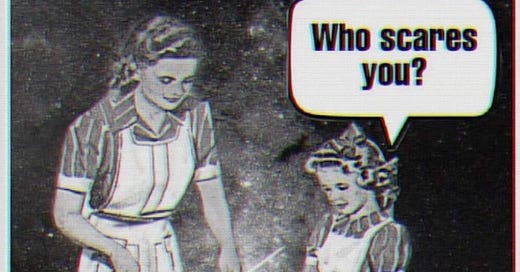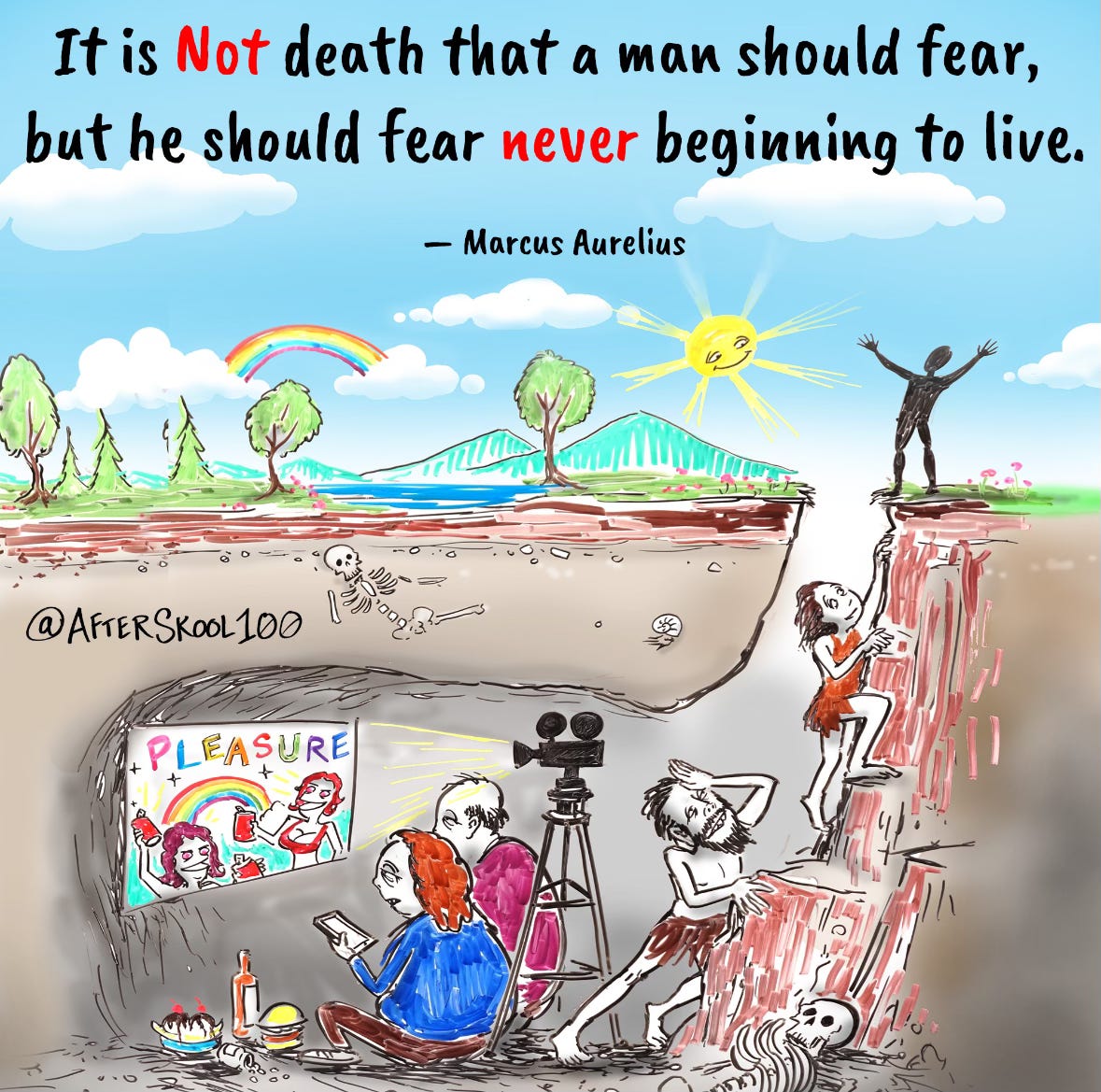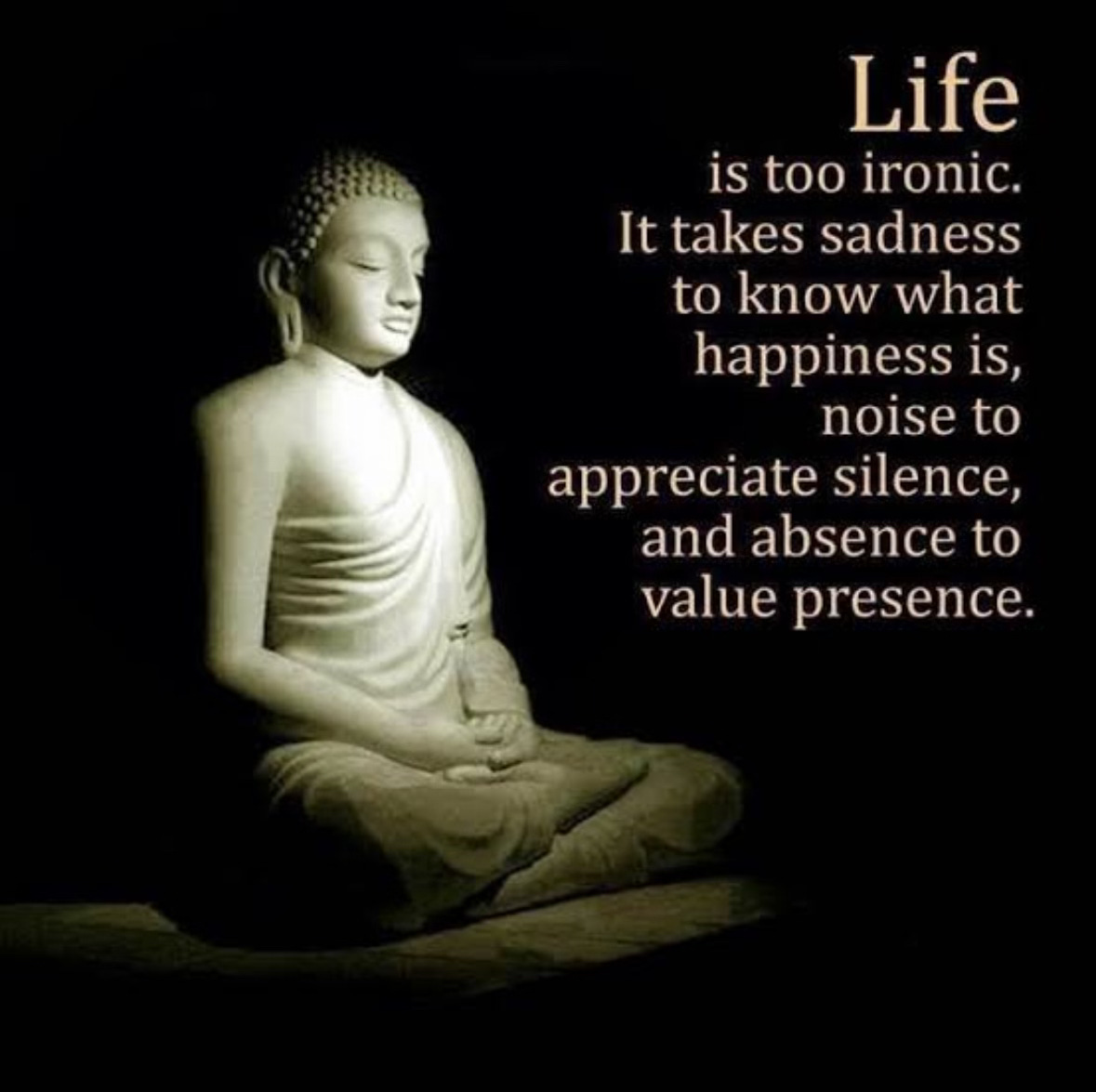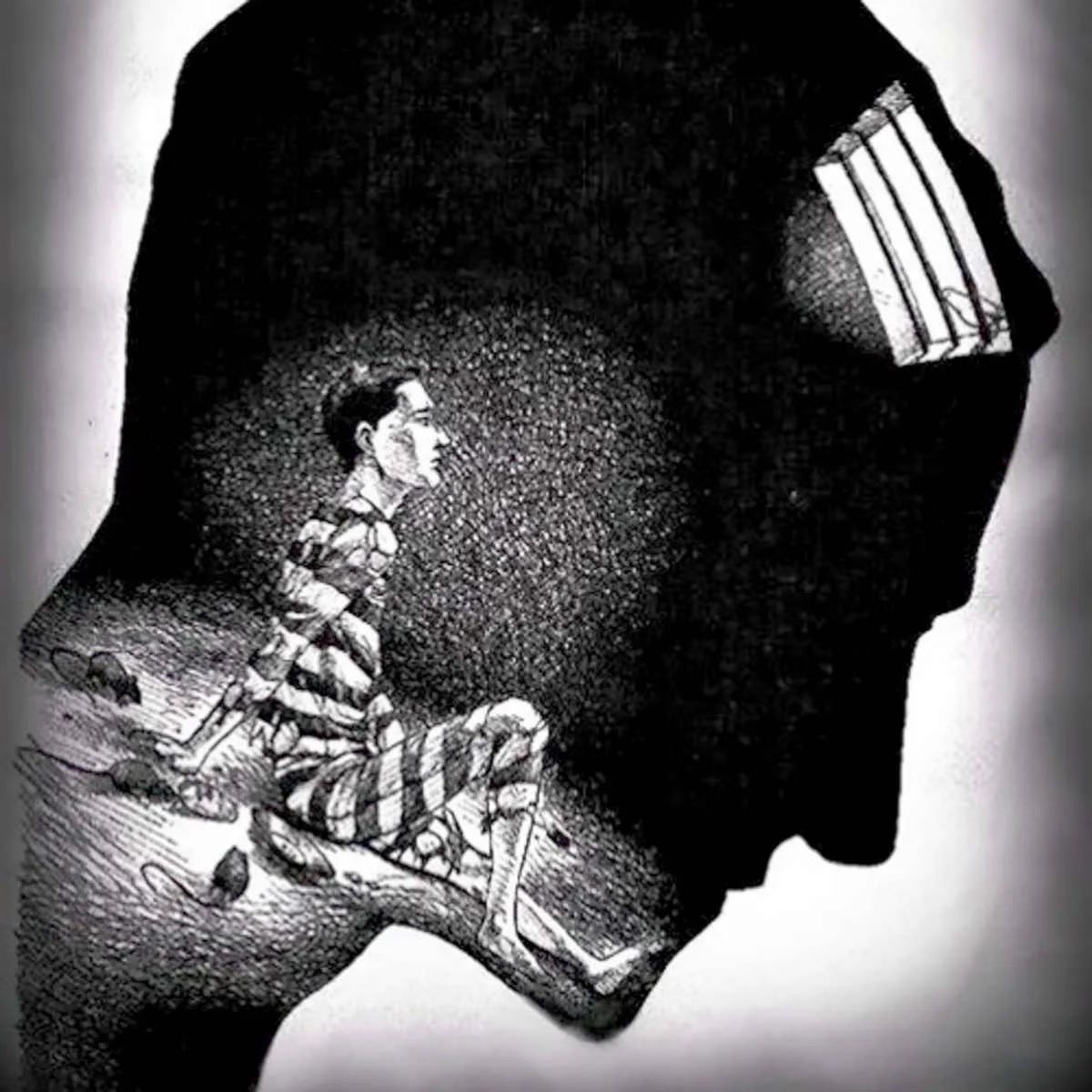The Secret Immunity Against Depression They Don't Teach in Medical School
Trust the path that led you here — this message is for you.
There's a secret immunity against depression, anxiety and suffering that the psychiatric industrial complex doesn't want you to discover.
Why?
Because it's free. It can't be patented. It can't be bottled, marketed, or sold at a 6000% markup. It empowers rather than sedates. It liberates rather than creates dependence.
And most dangerously of all—it challenges the fundamental narrative that you are broken and need their expertise to fix you.
For decades, I've watched as our collective consciousness has been colonized by the belief in our inherent brokenness. We've been conditioned to interpret every emotional struggle as a "disorder," every challenge as evidence of our deficiency, every painful feeling as proof of a "chemical imbalance." This narrative serves powerful interests—pharmaceutical companies, medical institutions, and a therapeutic industry that profits from your perpetual patienthood.
In my clinical practice I've witnessed countless lives unfold—some spiraling deeper into darkness while others transform suffering into profound awakening. What separates these radically different outcomes isn't what you've been told. It isn't genetic predisposition. It isn't childhood trauma. It isn't even the severity of current circumstances.
It's something far more fundamental, yet incredibly simple: their relationship to what happens in their lives.
Let me be direct: There is one perspective—one fundamental mindset—that seems to immunize people against the depths of despair, against existential dread, against the creeping emptiness that characterizes our modern epidemic of depression and anxiety. It protects them from attaching their identity to a psychiatric label. It shields them from the belief that they're inherently broken and forever dependent on expert intervention.
And it's beautifully, deceptively simple:
Everything is happening FOR you, not TO you.
This isn't some trite bumper sticker philosophy. This is a radical reframing of human existence that changes everything. It's a perspective that sees life not as a series of random cruelties inflicted upon you by an indifferent universe, but as a deliberate curriculum designed for your soul's evolution.
If you rolled your eyes after reading that statement.If you choose to approach life as if nothing has any meaning. If you lack any faith that there is something greater than all of us.. something all loving and divine. If you deny the existence of God. It would be best you just stop here.
If you think ... there goes McFillin again with his "pull up your bootstraps" mentality and his unwavering belief in all of human potential.. well spare yourself the pain of reading on.
If your fingers are already twitching to type that righteously indignant comment about how "some people NEED their medications" and how "real depression isn't a choice" and how "this privileged perspective ignores severe mental illness"—if you're mentally rehearsing that passionate defense of your brokenness, that elaborate justification for why you're the exception to human resilience—then perhaps this truth isn't for you.
Not yet, anyway.
If your identity is so thoroughly fused with your diagnosis that challenging it feels like an existential threat, maybe you should protect that fragile construction and stop reading now. The pharmaceutical industry and psychiatric establishment have spent billions ensuring you stay exactly where you are—comfortable in your cage, dependent on their solutions, convinced of your inherent defectiveness. Why let some article shake that convenient arrangement?
Or... perhaps you're precisely the person who needs to read every word that follows.
There are no coincidences.
The Shift That Changes Everything
I remember working with "Sarah," a 42-year-old who came to me after surviving breast cancer, only to have her husband of 17 years announce he was leaving her for someone else. Within the span of a year, she had faced her mortality and lost her marriage, her financial security, and half of her time with her children.
In our first session, she sat before me, hollow-eyed and barely present. Labeled with “major depressive disorder” and clinging to her SSRI prescription to prevent her from falling into the depths a darkness. A place she was scared she was heading.
"I don't understand why this is happening to me," she said. "What did I do to deserve all of this? I was a good wife. I took care of myself. I volunteered. I tried to be a good person."
Her words revealed the unspoken contract she believed she had with the universe—the "just world hypothesis" that had structured her entire understanding of life. Be good, and good things will happen. Follow the rules, and you'll be rewarded. She had kept her end of this imagined bargain, and now felt cosmically betrayed. This belief system, once a source of security, had become the very foundation of her depression. She now questioned everything.
The framing was clear: Life was happening TO her. She was a victim of random cruelty, of unfair circumstances, of others' choices. And with this perspective, her suffering was absolute. There was no exit, no purpose, no meaning—just pain that served no higher aim.
This can be extremely disorienting.
But over the course of about 6 months, something had radically shifted from our discussions.
"Something has shifted in me," she said, a new light in her eyes that hadn't been there before. "These catastrophes—the cancer, the divorce—they've woken me up from a kind of sleep I didn't even know I was in. I was moving through life on autopilot, following a script I never consciously chose. Always playing it safe, avoiding discomfort, staying within the narrow boundaries of what felt familiar and expected."
She paused, looking out the window for a moment.
"I married a man who wanted more from life than I was willing to risk. Deep down, I knew this—I just wasn't ready to face it because facing it meant questioning everything. And now I'm finally asking myself what I truly want, not what I thought I should want. It's terrifying and exhilarating all at once. For the first time, I'm feeling fully alive, fully present in my own existence. How strange that it took losing so much to finally find myself."
She wasn't denying her pain. She wasn't pretending her circumstances were ideal. She hadn't surrendered to toxic positivity. She had simply shifted her relationship to her suffering.
"For the first time in my life, I'm making choices based on what I actually want, not what I'm supposed to want. I'm discovering parts of myself I never knew existed. I'm terrified and I'm grieving, but I'm also more alive than I've ever been. It's like all of this had to happen to wake me up."
This is the consciousness shift I'm talking about. Sarah moved from seeing her circumstances as meaningless suffering inflicted upon her to viewing them as a curriculum designed for her awakening. She began to ask different questions:
Not "Why is this happening to me?" but "What is this teaching me?"
Not "How do I escape this pain?" but "How do I grow through this pain?"
Not "Who's to blame for my suffering?" but "Who am I becoming through this painful time in my life?"
And with these new questions, her entire experience transformed.
The Modern Epidemic of Meaningless Suffering
We currently live in a cultural moment that is particularly hostile to this perspective.
Our medical establishment pathologizes normal human emotions, turning the divine messengers of grief, anger, and fear into diseases to be medicated away. Our therapeutic culture often validates pain without transforming it into powerful change, keeping people endlessly circling their trauma without transcending it. Our social media feeds bombard us with evidence of our inadequacy, our failure, our brokenness.
We're obsessed with what's wrong with us. Our fragility. Our woundedness. Our diagnoses.
This hyperfocus on human brokenness creates an attention and consciousness that keeps us small, trapped in narratives of victimhood and limitation. Is it any wonder we're in the midst of a depression epidemic that no amount of SSRIs seems able to touch?
When we view life's difficulties as meaningless afflictions—random chemical imbalances, genetic bad luck, or the cruelty of others—we're left with a nihilistic framework that offers no path forward. If your depression is just a disease that happened to you, if your anxiety is merely a neurological glitch, if your suffering serves no purpose beyond torturing you—then what hope is there?
You become a passive recipient of fate rather than an active participant in your own unfolding.
Not a Disease, But a State of Being
Let's be radically honest here: Depression isn't some external disease that inflicts itself upon you. You didn’t catch it like a cold. It’s not some genetic vulnerability inherited as evidence by a distant uncle who committed suicide and you great grandfather’s alcohol abuse.
It's a state of being in the world—a state characterized by disconnection from meaning, purpose, and the divine current that runs through existence.
"But Dr. McFillin," I hear you protest, "my depression has physical origins. I had vitamin D deficiency, adrenal fatigue, and hypothyroidism. I was exhausted, my mood was low, and I couldn't experience joy. The blood tests confirmed actual medical issues!"
This is precisely where the psychiatric industrial complex keeps you trapped—by conflating physical symptoms with existential states, by medicalizing the natural consequences of physical illness. Of course you felt terrible with untreated thyroid issues. Of course fatigue plagued you with vitamin deficiencies. Of course your mood suffered when your hormones were dysregulated. These are expected consequences of physiological problems.
But labeling this constellation of symptoms as "Major Depressive Disorder" wasn't a medical breakthrough—it was a semantic sleight of hand that reduced you once again to mere biochemistry, disconnected from meaning. It's like calling the pain of a broken leg "Ambulatory Distress Disorder" instead of recognizing it as the natural, appropriate response to physical injury.
If I have migraines for three weeks straight, you're damn right I want to discover the underlying cause. And yes, those migraines will absolutely affect my mood, my energy, my capacity for joy. But calling this inevitable response "depression" pathologizes what is actually adaptive and appropriate. It mislabels a symptom as the disease itself.
Let's be crystal clear: even these physical symptoms were happening FOR you, not TO you. They were your body's desperate attempt to communicate that something needed attention. They were messengers carrying vital information about your health that required correction. By medicalizing these messages—turning them into a "mental illness" rather than recognizing them as communication—we miss their purpose and meaning.
When you believe that your pain is meaningless, that there's no purpose to your pain, that life is simply happening TO you rather than FOR you—depression is the natural result. It's your soul's protest against a nihilistic worldview that strips existence of its deeper significance.
I've worked with countless clients diagnosed with "treatment-resistant depression", or some other nonsensical label we manufactured, and who found no relief from the “treatments” designed to help them. What finally shifted their experience wasn't another pill or more validation of their pain—it was a fundamental reconceptualization of their relationship to their existence- including the circumstances that drive their suffering.
When they began to view their depression not as a meaningless disease but as a spiritual awakening in disguise, as their soul's demand for a more authentic and meaningful existence, everything changed. Their depression wasn't something to merely eliminate; it was something to listen to, to learn from, to grow through.
This doesn't mean their pain magically disappeared. It means their relationship to that pain transformed. It became purposeful, educational, developmental—a crucial chapter in their soul's evolution rather than a meaningless affliction to endure.
Breaking Free from the Victim Mentality
Our culture has perfected the art of victimhood. We've created intricate systems for categorizing the ways we've been wronged, developing sophisticated vocabularies for articulating our powerlessness, and building entire identities around our wounds.
And what has this gotten us? Record levels of depression, anxiety, and suicide. Record levels of prescription medication usage. Record levels of disconnection, disembodiment, and despair.
The victim narrative isn't just psychologically destructive—it's spiritually lethal. It cuts you off from your own power, from your capacity for growth, from your soul's inherent drive toward evolution. It keeps you small, stuck, and suffering.
The antidote isn't denying your pain or pretending bad things haven't happened. It's radically reframing your relationship to those experiences. It's choosing to believe—even when it seems impossible—that your life is unfolding exactly as it needs to for your highest growth.
This perspective doesn't ask you to deny reality. It invites you to engage with a deeper reality—the reality that your soul didn't come here for comfort, safety, or ease. It came here to grow, to awaken, to evolve. And growth rarely happens when we're comfortable. Awakening rarely occurs when everything is easy. Evolution demands challenge.
This isn't just philosophical musing. This is a practical approach to living that transforms how you navigate every aspect of existence.
When you truly believe that everything is happening FOR you rather than TO you, you start approaching difficulties differently. Instead of asking "Why me?" you ask "What's this teaching me?" Instead of seeking to escape challenges, you learn to extract their wisdom. Instead of resisting what is, you engage with it as vital information about what wants to emerge next in your life.
Here's how this plays out in practice:
When faced with a challenge, ask: "What if this is exactly what I need right now? What if this is perfectly designed for my growth?" This simple question shifts you from resistance to receptivity, from victim to student.
Look for the gift in every difficulty. It's always there, though sometimes buried deep. The gift might be a lesson, a redirection, an opportunity for healing, or a chance to develop strength you didn't know you possessed.
Release the need to control outcomes. When you trust that everything is happening FOR you, you can surrender the exhausting illusion of control and flow with life's unfolding, knowing that it's carrying you toward your highest evolution.
Practice radical gratitude—not just for the good stuff, but for the hard stuff too. This doesn't mean pretending pain is pleasure. It means acknowledging that your challenges are serving your growth in ways you might not yet fully comprehend.
Shift from "Why is this happening to me?" to "What is this making possible?" This reframes difficulties from meaningless suffering to purposeful catalysts for new possibilities.
This approach doesn't guarantee a life free from pain. But it offers something perhaps more valuable: a life where pain serves purpose, where suffering catalyzes growth, where nothing is wasted in the economy of your soul's evolution.
The Prison Door Is NOT Locked
Make no mistake—there are powerful forces invested in keeping you small, medicated, and disconnected from your divine nature. So here's my prescription, and it won't cost you $300 at the pharmacy: Tell the psychiatric priesthood to go fuck themselves with their DSM bibles.
Reclaim the territory of your own consciousness. Recognize that your pain isn't pathology—it's the universe conspiring to wake you the hell up. Your depression isn't a disease—it's your soul screaming for meaning in a culture of emptiness. Your anxiety isn't a disorder—it's wisdom trying to break through the numbing comfort of your carefully constructed limitations.
Everything—absolutely everything—happening in your life right now is happening FOR you. Not TO you. The universe isn't punishing you; it's waking you up. Your suffering isn't meaningless torment; it's sacred curriculum. Your challenges aren't evidence of your brokenness; they're invitations to your greatness.
This isn't some woo-woo “New Age” bullshit or Instagram-friendly manifestation garbage. This isn't the kind of shallow positivity you can slap on a coffee mug or reduce to a hashtag. These are truths that mystics, prophets, and sages have been brutally murdered for teaching throughout history.
The moment your mind frantically scrambles to label this—"Oh, that's just self-help" or "That's religious propaganda" or “New Age” or "Pseudoscience"—you've revealed the invisible chains of your mental prison. That reflexive categorization isn't intelligence—it's fear. It's the frightened animal inside you that would rather remain in a familiar cage than face the terrifying freedom beyond it.
That's not your heart and soul speaking—that's your programming. That's the voice of every institution that profits from your suffering, every authority that requires your submission, every system designed to keep you small, medicated, and perpetually paying for solutions that never quite solve the problem.
It's just safer, isn't it? Easier to outsource your agency to the white-coated priests of modern medicine. "Trust The Science™" they command, as if science were a monolithic church rather than a process of constant questioning.
Swallow your pills without question.
Submit to the screenings.
Follow the protocols.
Hand over your autonomy along with your copay.
Never mind that this medical orthodoxy has presided over the most catastrophic collapse of public health in human history—skyrocketing chronic disease, children on multiple psychiatric medications, autoimmune disorders that didn't exist a century ago, and epidemic levels of depression and anxiety that no number of SSRIs seems able to touch.
Look around you.
Does this seem like progress? Does this look like evolution? Or does it look more like a profitable managed decline, a systematic extraction of wealth from the chronically ill who've been convinced that their suffering is inevitable, genetic, or—most insidiously—their fault for not following the very advice that's making them sicker?
The Matrix isn't just a movie—it's the elaborate architecture of thought control you mistake for your own mind. Break free or remain enslaved. There is no middle ground.
The choice is yours. You can remain a statistic, a patient, a diagnosis, a case file—or you can become a protagonist in the epic story of your own becoming. You can keep asking "Why me?" or you can start asking "What for?" You can stay trapped in the prison of meaningless suffering, or you can step into the freedom of purposeful transformation.
Your liberation begins the moment you realize that nothing has ever been happening TO you.
It's all been happening FOR you.
Always has been. Always will be.
The prison door is open. Will you step through?
I try to keep RADICALLY GENUINE as free as I can, but it takes quite a lot of work. If you find some value in my writing and podcast I very much appreciate the paid subscription. It really helps me continue putting time aside for these pieces. Thank you.










Yes, THANK YOU! I changed my physical and mental health more radically with a clean diet, sunshine, outdoor exercise and daily gratitude to my Maker, than any prescription or therapy ever offered me. I am lighter in every possible way. And I can only fully witness and appreciate this new state of being as a stark contrast to the years I lived in its absence.
I would do anything to have everyone in the world read this. Victimhood is throwing hope and joy into the toilet and most of our therapists are doing the flushing.